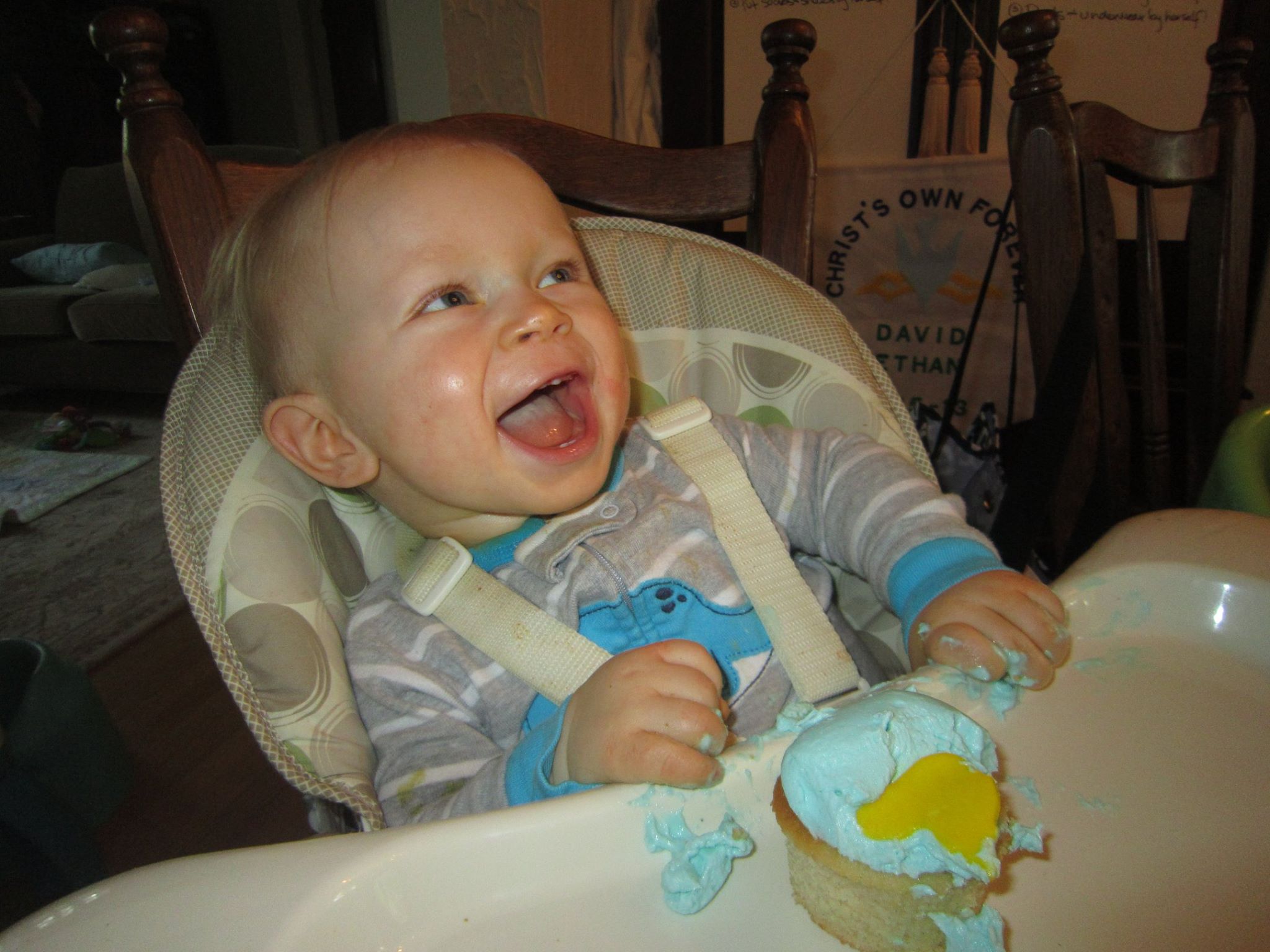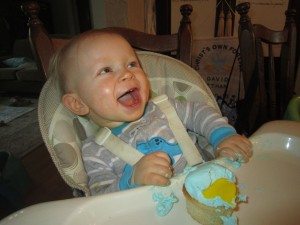6/14/2014
·Enable high contrast reading
It's Father's Day and I am Ethan's Dad

I find myself occasionally thinking about how I would describe myself to others. What would I want others to know about me? Who am I?
Let’s see. I was born in Chicago, but I grew up in Dallas. Parts of my family have lived in the U.S. since the American Revolution, but others are more recent immigrants. My ancestors include owners of cigar factories as well as coal miners. I have little tolerance for unkindness, disrespect, or disregard for the truth (except when telling a joke, and I love joking around).
I studied engineering in college and met my wife, Michelle, when we were taking physical chemistry together. I was 20 when we met, and she has been my best friend ever since. We attended law school together, and we each became patent attorneys.
We now live in a “first-ring” suburb outside Washington, D.C., in a house built in 1929. It’s a cozy house on an undersized lot by modern standards; even our small sedan car is too large to fit inside the garage. But I commute only 1.5-non-highway miles to work, and it is comfortable enough for us and our kids. We can walk to parks (both kid and dog kinds), stores, restaurants, and grocery stores. We know almost all of our neighbors within a block or two of our house. After our third child was born, Michelle decided to stay home full time and raise our twin girls and their younger brother.
When I’m not working, I prefer to spend my time being silly with my wife and our kids. I also enjoy taking photographs, particularly plants and flowers or peculiar things like doors, windows, and odd patterns. I spend as much time as I can outside, on a road or mountain bike or on a hike. At home, it’s nice to cook a meal from our ever-growing collection of cookbooks. And I enjoy watching and playing sports, although I am fairly uncoordinated and not particularly athletic myself.
That provides you with a decent, yet utterly incomplete portrait.
No, the single most important thing you should know about me is that I am a father whose son, Ethan, died in January from an incurable genetic disease. This past Thursday – June 12 – is my son’s second birthday. Father’s Day and his birthday will always be intertwined, as if I could ever forget that he was my son, is my son.
Ethan developed normally until he was 6-months old. But before his death, he lost his ability to sit up, lost his ability to hold his head up, lost his grip, lost most of his eyesight, and suffered from seizures.
After we received Ethan’s diagnosis (which we received within days of my birthday; those are now intertwined, too), Michelle and I made a decision that we would provide treatments and medicines that would reduce any discomfort. This was a practical decision, and one I wish we hadn’t been forced to make. We desperately wanted a cure; I woke up many days in total disbelief that our beautiful son had an incurable, terminal disease. But there was no cure. So we decided that we would not extend his life if it meant discomfort and suffering for him. We were glad to have doctors who presented all options of care but allowed us – his parents – to decide what was best for Ethan.
Michelle ensured that he had a daily schedule of drugs, about a half-dozen or so. She printed out his regimen on a sheet titled “Ethan’s Recipes” that was taped to the kitchen wall. She arranged and coordinated the numerous doctor’s appointments as well as the weekly visits from hospice nurses, hospice volunteers, massage therapists, etc., all while still mothering Ethan’s older sisters. I went to work, hoping each day that I could concentrate enough to do a sufficiently decent job to keep my clients happy. That was very difficult for both of us.
Michelle and I cared for Ethan as best we could and kept him as comfortable as possible. When he lost his ability to chew and swallow and when his digestive system rejected the liquids we tried to give him, we did not force him to eat or drink anymore. He died sixteen days later. It happened so much faster than we had anticipated. And this was very very difficult.
I think it’s important for people to know this short difficult piece of my life if they want to understand who I am. Not because I want sympathy or pity. But rather, because Ethan is such a part of me. And because telling others reminds me of Ethan. Of his smiles and his pure, unadulterated, rolling belly laughs. Of his then-four-year-old sisters taking care of him and kissing his head as he laid dying in our living room. Of the innocent times before his diagnosis, and of the more sorrowful, pragmatic times afterwards.
I also believe that the mere fact of knowing that my son died creates a human, empathetic connection between others and me. Michelle and I cared for a child with a horrible, incurable disease, and our child lived then died. That alone tells you more about me than how I grew up, what I do, or where I live. I want you to know that my wife and I faced impossible decisions, have experienced immense pain and extraordinary sadness, and also that we continue to love our son so very much even though his body is gone.
I want you to know that I’m Ethan’s dad. That’s who I am



